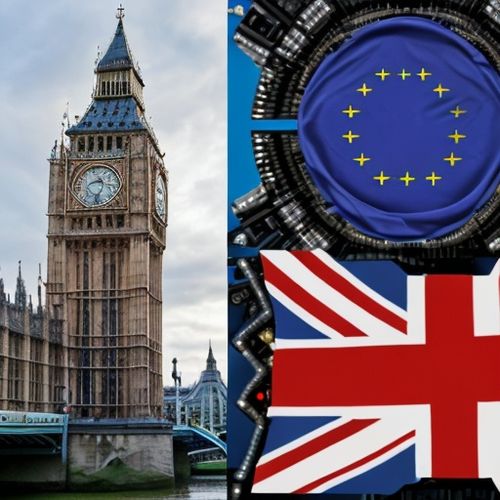The European Union's landmark Digital Markets Act (DMA) has emerged as the most significant regulatory challenge to tech giants in their decades of global dominance. This sweeping legislation, which fully came into force in 2023, is fundamentally altering how gatekeeper platforms operate within the EU's 27 member states - with ripple effects being felt across global markets.
At its core, the DMA represents a philosophical shift from ex-post antitrust enforcement to ex-ante regulation. Where previous competition interventions came years after market dominance was established (if at all), the EU has now created a preemptive framework designed to maintain contestability in digital markets. The law identifies specific "core platform services" where gatekeepers - predominantly American tech giants - must change their practices.
The immediate effects have been visible across multiple dimensions of tech operations. Apple has been forced to allow third-party app stores and alternative payment systems on iOS in Europe, dismantling its walled garden approach that generated billions in App Store commissions. Early data suggests European iOS users are installing rival app stores at higher rates than anticipated, though security concerns persist about less-vetted applications.
Similarly, Google must now provide choice screens for search engines and browsers on Android devices, with the company's internal projections suggesting this could cost them up to €4 billion annually in lost search advertising revenue. The mandated unbundling of services like Google Flights from general search results has created openings for specialized competitors that previously couldn't break through the algorithmic preference given to Google's own products.
Perhaps most dramatically, Meta faces existential questions about its advertising business model under DMA requirements. The prohibition on combining user data across different services without explicit consent has severed the connections between WhatsApp, Facebook, and Instagram that powered Meta's targeted advertising machine. Early reports indicate European ad targeting effectiveness has declined by 30-40%, with corresponding drops in ad prices as the precision of Meta's audience segmentation deteriorates.
The messaging interoperability requirements may prove even more disruptive in the long term. By forcing WhatsApp and Messenger to work with smaller rivals, the DMA could erode the network effects that have made these platforms indispensable. While implementation remains technically challenging, the principle threatens the very dynamics that enabled winner-take-all outcomes in social media and messaging.
For Amazon, the DMA's restrictions on self-preferencing have led to visible changes in product search results. Where Amazon Basics and sponsored products once dominated prime real estate, European users now see more third-party listings. This has boosted some independent sellers while forcing Amazon to rethink how it monetizes its marketplace. The company's shipping and fulfillment advantages remain intact, but the playing field for visibility has notably leveled.
Beyond these specific cases, the DMA is driving structural changes in how tech giants approach the European market. Many companies are creating separate EU-specific product architectures rather than degrade their global offerings to comply with European rules. This Balkanization of digital services represents a significant operational cost - analysts estimate compliance expenditures in the hundreds of millions for each gatekeeper - but may ultimately lead to a bifurcated internet where European users experience meaningfully different services than other regions.
The business model implications extend beyond immediate compliance costs. By prohibiting certain data practices and mandating interoperability, the DMA effectively commoditizes aspects of platform services that were previously proprietary differentiators. When any messaging app can work with WhatsApp, when any app store can distribute iOS apps, and when any retailer can appear prominently on Amazon search results, the unique value propositions of these platforms erode.
This regulatory environment is already influencing investment decisions. Several gatekeepers have slowed European data center construction while accelerating investments in Asia and South America. Hiring for EU-based AI development teams has declined relative to other regions as companies weigh the additional regulatory uncertainty surrounding cutting-edge technologies under the DMA's evolving interpretation.
The long-term competitive effects remain uncertain. While the DMA clearly disadvantages incumbent gatekeepers in their European operations, it's unclear whether European tech firms will be the primary beneficiaries. Early data suggests American competitors like Microsoft and non-gatekeeper tech firms may be gaining more than European startups from the leveled playing field. The regulatory burden of compliance may paradoxically reinforce the advantages of well-resourced incumbents over true upstarts.
What's undeniable is that the DMA has broken the regulatory dam. Other jurisdictions from Japan to Brazil are developing similar frameworks, and the cumulative effect could force tech giants to adopt their EU-compliant models globally rather than maintain parallel systems. The coming years will reveal whether this represents a fundamental rebalancing of digital power or simply a new compliance layer atop existing dominance.
As the first major economy to systemically confront platform power through comprehensive legislation, the EU has set in motion forces that even its architects can't fully predict. The DMA's true impact may only become clear when the next generation of digital services emerges - either thriving in the spaces created by regulated competition or struggling against the inertia of established networks in a merely modified form.

By Ryan Martin/Apr 7, 2025

By Ryan Martin/Apr 7, 2025

By David Anderson/Apr 7, 2025

By Olivia Reed/Apr 6, 2025

By Daniel Scott/Apr 6, 2025

By Victoria Gonzalez/Apr 6, 2025

By John Smith/Apr 6, 2025

By Elizabeth Taylor/Apr 6, 2025

By James Moore/Apr 6, 2025

By Megan Clark/Apr 6, 2025

By Daniel Scott/Apr 6, 2025

By William Miller/Apr 6, 2025

By Samuel Cooper/Apr 6, 2025

By Amanda Phillips/Apr 6, 2025

By Natalie Campbell/Apr 6, 2025

By Noah Bell/Apr 6, 2025

By Elizabeth Taylor/Apr 6, 2025